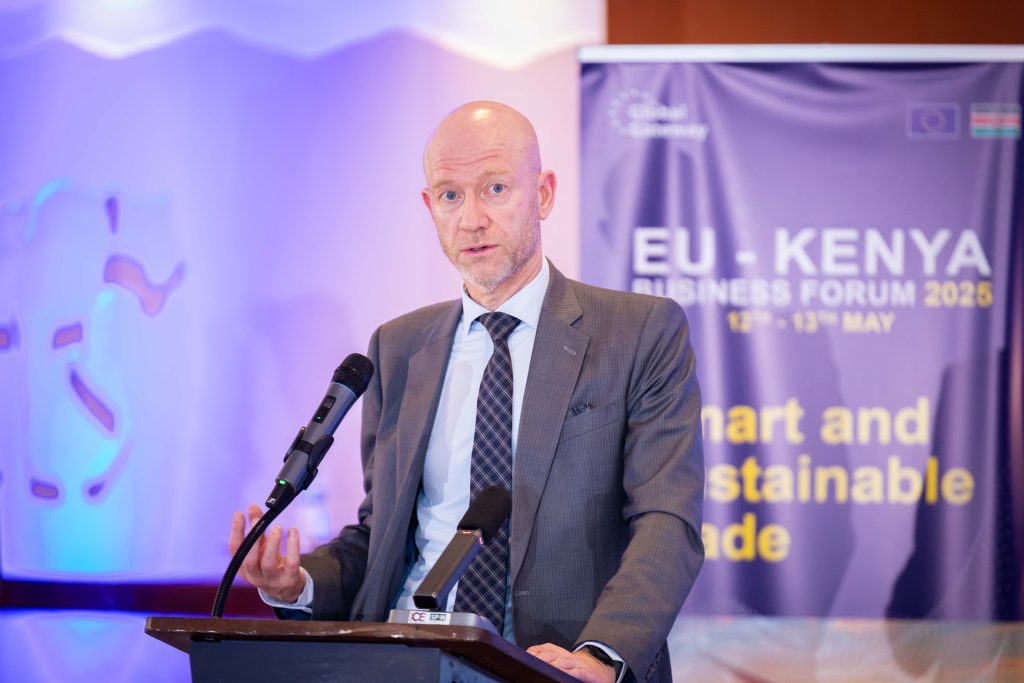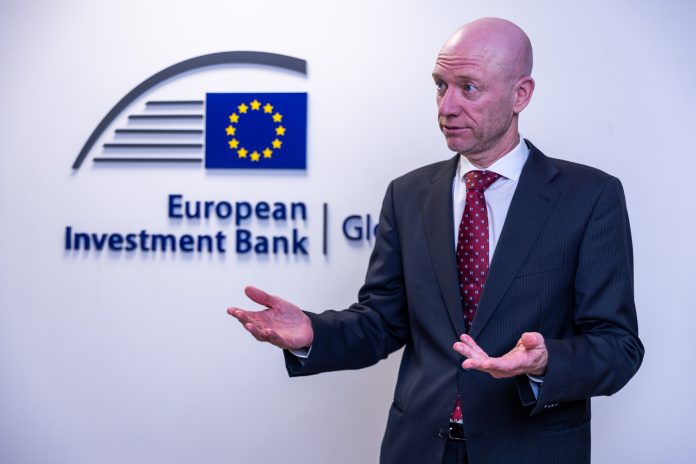Small and Medium Enterprises (SMEs) are the backbone of Kenya’s economy, contributing nearly 40 percent of GDP and employing over 80 percent of the private sector workforce.
Despite their crucial role, many SMEs have been locked out of funding, a challenge that has seen many collapse.
For many of these businesses, a once elusive resource is now within reach thanks to support from the European Investment Bank (EIB) through its intermediated lending framework through its partnerships with local banks or private equity/venture capital funds.
Approximately 60 percent of businesses in Kenya are unable to access credit over various issues, including inadequate collateral, high interest rates, and perceived high risk by lenders.
Traditional lenders often impose strict requirements, including high collateral demands and thorough credit assessments, which many enterprises cannot meet. This is particularly challenging for startups and businesses in their early growth stages.
Additionally, many business owners lack the necessary financial literacy to navigate the complex financing landscape, which hampers their ability to secure funding or attract funding and manage their finances effectively.
EIB’s partnership with local banks in Kenya through an intermediated lending framework comes in handy to bridge this financing gap and ensure the sustained growth and resilience of SMEs, especially those in underserved or perceived as risky sectors.

EIB Global announces new investment in Seedstars Africa Ventures
By offering capital to local banks at better terms than available in the country, commercial banks are then able to lend to Kenyan entrepreneurs at better terms.
This is not all, EIB also provides alternative funding sources through its work with private equity or venture capital funds to avail capital for enterprises in the country. This is more so for young early-stage businesses in the country or those with potential for high growth and massive scalability.
“Africa only receives between 1 and 2 percent of the global venture capital investment. When you look at the population, which is nearly 20 percent of the global population, you can see there is a big mismatch,,” said Edward Claessen, Head of European Investment Bank, Regional Hub for East Africa.
EIB’s support for private equity/venture capital funds operating in Africa spans decades and the bank has so far invested over EUR 3.8 billion of its own funds across 178 funds operating on the continent.
This seed money has in turn mobilized over EUR 32.4 billion from a pool of other investors, who were attracted by EIB’s investment in these funds.
The Bank decided to take this further by launching the Boost Africa initiative.
It is a joint initiative of the African Development Bank (AfDB) and the European Investment Bank (EIB), with support from the European Commission and is aimed at creating a sustainable venture capital ecosystem for young businesses in Sub-Saharan Africa to attract investors by availing capital and technical assistance.
Now fully deployed, the initiative operates through a multi-pronged investment model, where funds are channeled into local venture capital and private equity funds, which in turn invest directly in promising high growth enterprises and innovative start-ups.
“At a higher level, we are supporting the incubators, accelerators, early stage and growth stage fund managers, all the way to more mature companies,” Claessen added, noting that the initiative has a strong focus on youth and women-led enterprises.
The infusion of capital and technical support into the private sector through the initiative has provided grounds for the enterprises to scale their operations, expand into new markets, and invest in necessary technologies.

How funding from the EIB helped our businesses to break even
Under the Boost Africa initiative, the EIB has invested EUR 78 million of its own funds, which have gone on to mobilize close to EUR 400 million from other investors.
The financing has already benefitted 73 companies in Africa within a 5-year period and the number is on track to reach 120 companies by the end of the program. This has created thousands of jobs for the youth.
Samuel Munguti, the CEO and founder of agri-tech firm Shamba Pride, is one of the entrepreneurs who have benefited from the EIB Boost Africa initiative in Kenya.
Through financial and non-financial support, Munguti has been able to scale his operations, ultimately boosting revenues.
“At Shamba Pride, we felt that we need financial partners like EIB and we feel that such funds really resonate with local early-stage capital needs to spur development. Beyond the capital that Seedstars Africa Ventures (the Fund) deployed to Shamba Pride, we have really benefited as a business a lot. Our first cheque was USD500,000, and that unlocked a lot of opportunities for Shamba Pride. Within 3 years from 2021, we grew our revenues from Sh5 million to close to Sh300 million,” Said Munguti.
Through the private equity fund, Shamba Pride has been instrumental in delivering digitized, quality, and affordable agriculture inputs to local farmers conveniently and created a market opportunity for 80,000 smallholder farmers and 4,000 agro dealers.
“Farmers in the Shamba pride ecosystem report a 2.5 increase in farm productivity,” Munguti notes.
The firm has also managed to invest in professionals, including growing its workforce from 4 employees to more than 40 within four years.
The Shamba Pride transformation is a testament to how access to reliable financing, capacity building, strategic advice and networking opportunities can drive the country’s private sector future.
As Kenya’s economy continues to recover from global shocks and embrace new opportunities in technology and green growth, businesses will continue to play a pivotal role and ensuring their access to affordable and reliable financing will be critical.
The EIB-backed finance is not only a source of funding for Kenyan entrepreneurs but also a foundation for lasting growth.








